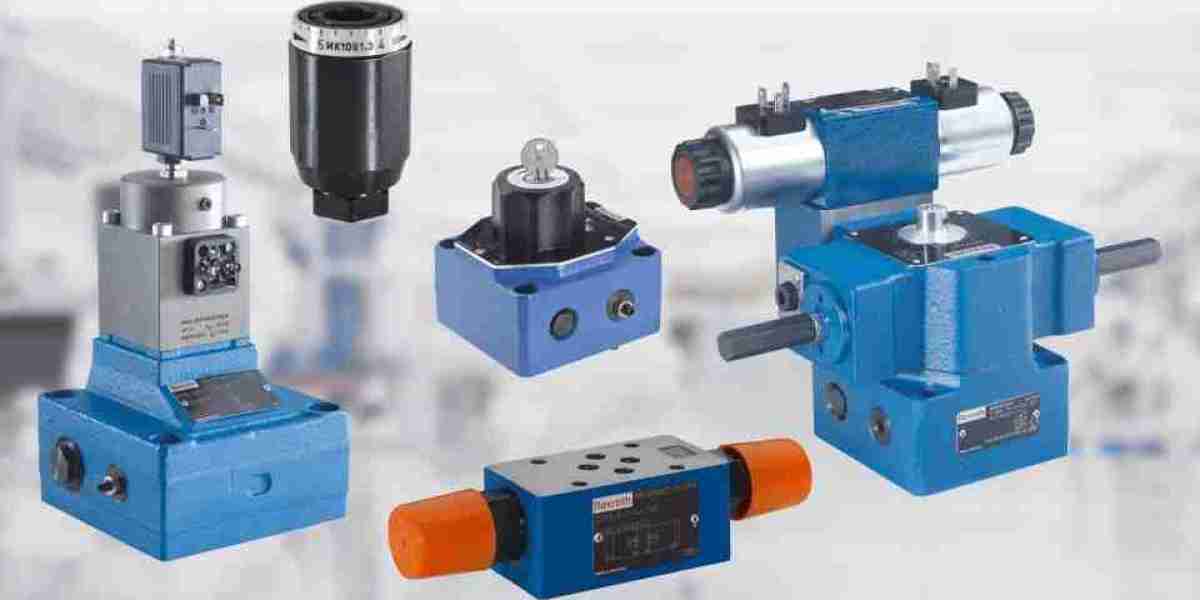How Hydraulic Valves Improve Efficiency in Industrial Machinery
Hydraulic valves play a crucial role in modern industrial machinery by controlling the flow of hydraulic fluid, ensuring precise and efficient operations. These valves regulate the pressure, direction, and flow rate of hydraulic fluid within a system, leading to improved performance, energy efficiency, and reliability. Industries such as manufacturing, construction, aerospace, and automotive rely heavily on hydraulic systems to power various types of equipment. This article explores the ways in which hydraulic valves enhance efficiency in industrial machinery, detailing their benefits and applications.
According to a Hydraulic Valves Market report, the industry is expected to grow significantly in the coming years.
Enhanced Control and Precision
One of the primary advantages of hydraulic valves is their ability to provide precise control over industrial machinery. By regulating the flow of hydraulic fluid, these valves allow for smooth and accurate operation of equipment such as presses, lifts, and robotic arms. Proportional valves, for instance, offer variable control by adjusting the flow rate based on input signals, ensuring seamless and responsive machinery performance. This precision helps reduce material waste, improve product quality, and enhance overall operational efficiency.
Energy Efficiency and Reduced Power Consumption
Hydraulic systems can consume significant amounts of energy, making efficiency a critical factor. Hydraulic valves contribute to energy savings by optimizing fluid flow and reducing unnecessary pressure drops. Pressure-compensated flow control valves, for example, adjust the fluid flow based on the load requirements, minimizing energy wastage. Additionally, load-sensing valves ensure that hydraulic pumps deliver only the necessary power, preventing excessive energy consumption. This leads to lower operational costs and a reduced carbon footprint, aligning with sustainable manufacturing practices.
Increased Equipment Longevity
Industrial machinery operates under high-stress conditions, and excessive wear and tear can lead to costly downtime and maintenance. Hydraulic valves help protect machinery by regulating pressure and preventing overloads. Relief valves, for example, safeguard hydraulic systems by limiting maximum pressure levels, reducing the risk of damage to pumps, hoses, and actuators. By maintaining optimal operating conditions, hydraulic valves extend the lifespan of industrial equipment, reducing maintenance costs and improving overall productivity.
Improved Safety and Reliability
Safety is a top priority in industrial environments, and hydraulic valves play a key role in ensuring safe operation. Emergency shut-off valves, for instance, allow for immediate cessation of fluid flow in case of system failures or malfunctions, preventing accidents and equipment damage. Additionally, check valves prevent backflow, ensuring that hydraulic systems operate smoothly without reverse pressure issues. These safety mechanisms enhance the reliability of machinery, reducing the likelihood of operational failures and workplace injuries.
Faster Response Time and Higher Productivity
Efficiency in industrial machinery is closely linked to response time and productivity. Hydraulic valves enable rapid and precise movement of components, ensuring that equipment operates at optimal speeds. Directional control valves, for example, quickly change the direction of fluid flow, allowing for swift and seamless operation of hydraulic cylinders and motors. This responsiveness enhances production rates, minimizes downtime, and increases overall efficiency in industrial settings.
Versatility and Adaptability
Hydraulic valves are highly versatile and can be customized to meet the specific requirements of different industrial applications. Whether in heavy-duty construction machinery, precision manufacturing tools, or aerospace systems, these valves can be designed to handle varying pressure levels, flow rates, and environmental conditions. Modular valve systems further enhance adaptability, allowing industries to upgrade or modify their hydraulic systems without extensive redesigns. This flexibility ensures that hydraulic machinery remains efficient and capable of meeting evolving industrial demands.
Minimized Fluid Leakage and Waste Reduction
Leakage in hydraulic systems can lead to significant fluid loss, increased maintenance costs, and environmental concerns. Advanced hydraulic valves are designed to minimize leakage by using high-quality seals and precise control mechanisms. Cartridge valves, for example, are compact and reduce the number of potential leak points within a system. By preventing fluid wastage, hydraulic valves contribute to cost savings and environmental sustainability, making them an essential component of modern industrial machinery.
Integration with Smart Technology
The integration of hydraulic valves with smart technology has revolutionized industrial automation. Modern hydraulic systems are equipped with sensors and electronic controls that enable real-time monitoring and data analysis. Smart proportional valves, for instance, can adjust fluid flow based on predictive algorithms, optimizing efficiency and performance. The implementation of Industrial Internet of Things (IIoT) technology allows for remote monitoring, predictive maintenance, and automated adjustments, reducing downtime and enhancing operational efficiency.
Applications in Key Industrial Sectors
Hydraulic valves are widely used across various industries, each benefiting from their efficiency-enhancing capabilities:
Manufacturing: Hydraulic presses, injection molding machines, and automated assembly lines rely on hydraulic valves for precision control and high-speed operation.
Construction: Heavy equipment such as excavators, bulldozers, and cranes utilize hydraulic valves to control movement, improve load handling, and enhance safety.
Aerospace: Aircraft hydraulic systems depend on valves for controlling landing gear, flight control surfaces, and braking mechanisms.
Automotive: Hydraulic power steering, braking systems, and transmission controls use hydraulic valves to ensure smooth and efficient vehicle operation.
Conclusion
Hydraulic valves play a vital role in improving the efficiency, safety, and reliability of industrial machinery. By providing precise control, reducing energy consumption, enhancing equipment longevity, and integrating with smart technology, these valves contribute to optimized industrial operations. As industries continue to evolve, the demand for advanced hydraulic valve solutions will grow, driving innovation and efficiency in industrial machinery. Investing in high-quality hydraulic valves is essential for businesses looking to enhance productivity, reduce operational costs, and maintain a competitive edge in the market.







